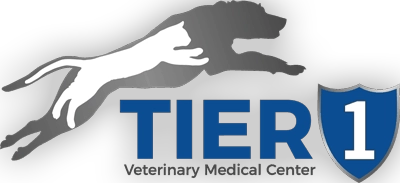Ophthalmology Referrals
at Tier 1 Veterinary Medical Center
Supporting Your Pet’s Eye Health through Specialist Care
At Tier 1 Veterinary Medical Center, we recognize the importance of specialized eye care for pets experiencing ophthalmological issues. While we do not offer direct ophthalmology services, we are committed to helping pet owners by providing referrals to trusted ophthalmology specialists. Ensuring your pet receives expert care for their eye health is our priority.
If you are seeking these services, please contact our hospital to explore available options and discuss potential referral coordination, either through our locum team or other care providers.
General Practice and ER Services for Common Eye Issues
When Is a Specialist Needed?
While many eye conditions can be managed by our general practice and emergency veterinarians, certain advanced cases require the expertise of a veterinary ophthalmologist. Specialist care may be necessary for conditions that involve complex diagnoses or advanced treatments, including:
- Advanced Glaucoma: When the condition has progressed to a point where specialized surgical interventions, such as laser therapy or drainage implants, are needed.
- Retinal Diseases: Conditions like retinal detachment or advanced degenerative diseases that may require specialized diagnostic equipment and treatments.
- Severe Trauma: Significant injuries to the eye or orbital area that might require reconstructive surgery or advanced surgical repair.
- Cataract Surgery: While early cataract changes can be monitored by general practitioners, the surgical removal of cataracts requires the precision and expertise of a specialist.
- Corneal Transplants: Complex procedures like corneal grafting or transplants for severe corneal ulcers or dystrophies.
Identifying the Need for a Specialist
Our team at Tier 1 Veterinary Medical Center is committed to providing the highest standard of care for your pet’s eye health. Here are steps we follow to determine whether your pet needs to see a specialist:
- Initial Assessment: Our general practice or ER vets will conduct a thorough examination of your pet’s eyes, using diagnostics that may include slit-lamp biomicroscopy, tonometry, or ocular ultrasound.
- Treatment Plan: Based on the initial findings, we will implement a treatment plan. For many conditions, immediate and effective solutions can be provided on-site.
- Monitoring and Follow-Up: We closely monitor the response to treatment and the progression of the eye condition. If the issue does not resolve or improves but requires advanced care, we’ll discuss the next steps.
- Specialist Referral: If a specialist’s expertise is needed, we facilitate the referral process, ensuring a smooth transition and continuous care. We share all relevant medical history and diagnostic results with the ophthalmology specialist to provide a comprehensive overview of your pet’s health.
Common Eye Issues in Pets
Pets can experience a variety of eye problems, some of which may require specialist attention. Understanding these common conditions can help you identify when your pet might need to see an ophthalmologist:
- Cataracts: Cloudiness in the lens of the eye that can lead to decreased vision and potential blindness. Common in older pets and certain breeds.
- Conjunctivitis: Inflammation of the conjunctiva, leading to red, itchy, and weepy eyes. It can be caused by allergies, infections, or other irritants.
- Glaucoma: An increase in the pressure within the eye that can cause pain and lead to serious vision loss if not treated promptly.
- Corneal Ulcers: Open sores on the cornea that can result from injury, infection, or lack of tear production.
- Uveitis: Inflammation of the internal structures of the eye, which can result from infections, autoimmune disorders, or trauma.
- Cherry Eye: Prolapse of the third eyelid gland, commonly seen in younger dogs, which can cause irritation and redness.
Identifying Eye Problems in Your Pet
Early detection is crucial for effectively managing eye diseases. Signs that your pet may have an eye problem include:
- Squinting or excessive blinking
- Noticeable cloudiness or change in eye color
- Red or inflamed eyes
- Excessive tearing or unusual discharge
- Rubbing or pawing at the eyes
- Visible third eyelid
- Behavioral changes such as reluctance to go into bright areas
What to Do If You Notice Eye Issues
- Assess and Document: Note any symptoms and changes in your pet’s eyes, and monitor if symptoms persist or worsen.
- Contact Tier 1 Veterinary Medical Center: Reach out to us for an initial evaluation. We can assess your pet’s eye condition and provide guidance.
- Referral for Specialized Care: If your pet needs specialist care, we will facilitate a referral to an ophthalmology specialist. We ensure all pertinent information is transferred, and we will assist you with the necessary arrangements for your appointment.
